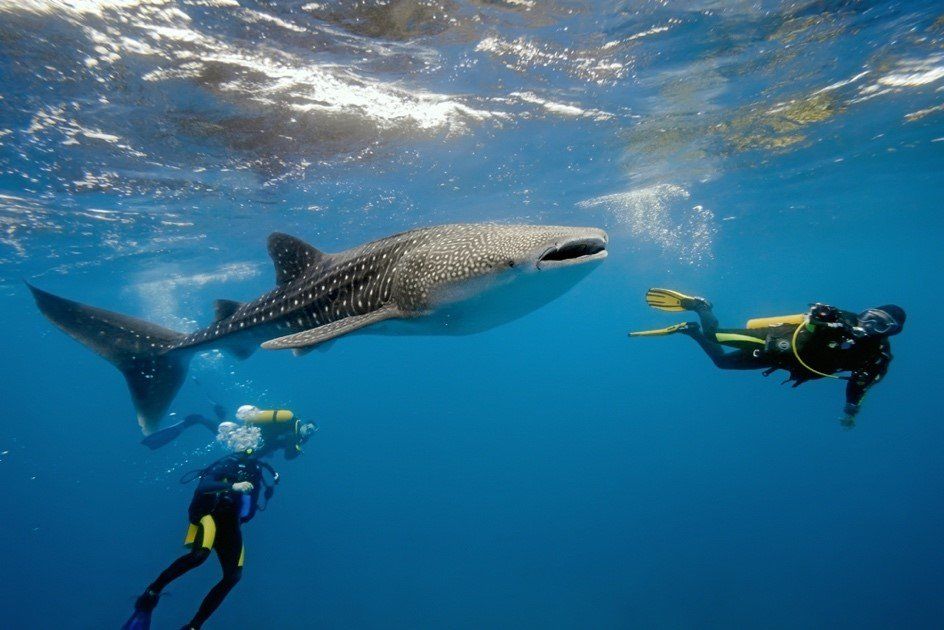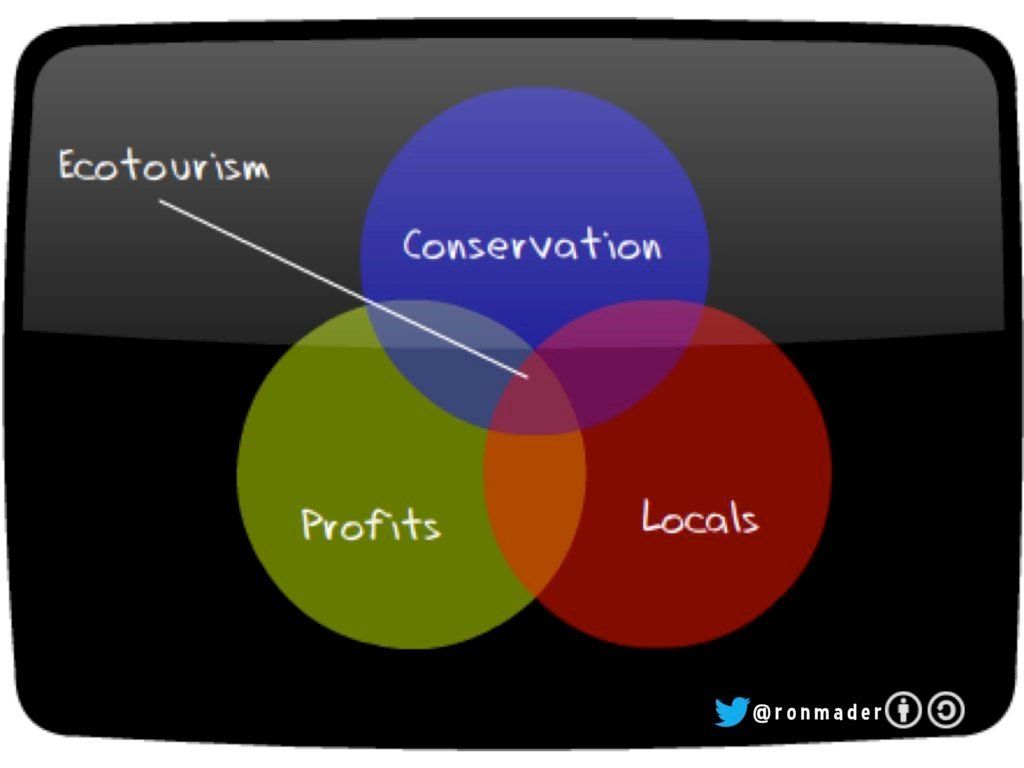Sustainable Eco-tourism Can Have a Positive Impact on Marine Conservation
Ecotourism, according to the International Ecotourism Society, is “responsible travel to natural areas that conserve the environment, sustain the wellbeing of the local people, and involve interpretation and education.” It is a booming industry and since the 1990s, has seen an average global annual growth rate of 20 to 34%. One of the main objectives of ecotourism is conservation education. While it is undisputed that ecotourism helps the local community economically, little research has been done on how it impacts the local opinion on conservation.
A group of researchers in the Philippines set out to determine if working in the ecotourism industry successfully changes the opinions of the local employees when it comes to the conservation of the whale shark ( Rhincodon typus ) and its habitat (Ziegler, et al ., 2020). Whale sharks are generally considered to be gentle giants. They eat phytoplankton and are the largest fish species in existence today measuring up to 20m in length. In the Philippines they were regularly caught by fishermen until a hunting ban went into effect in 1998, and the local focus shifted to ecotourism.
Researchers interviewed employees at three different whale shark tourism sites varying in size, as well as one failed tourism site to gain the overall opinion of the employees. This was done to determine if the size of the tourism site also impacts the local opinion when it comes to whale shark and ocean conservation. The large-scale tourism site investigated in this study is the largest noncaptive whale shark tourism site in the world. The employees at this site feed the whale sharks to ensure year-round viewing. This mass tourism site pulls in upwards of $10 million USD annually. At the two smaller tourism locations, viewings are variable, and therefore employees at these two locations do not have year-round employment. Annual revenue for the two smaller locations is $800,000 and $56,000 USD. The final site assessed by the researchers was as an ecotourism site that failed because whale shark sightings were too sparse for a profitable industry.
The researchers found that overall, participation in ecotourism leads to positive general opinions of whale sharks and the larger marine environment. This can then be applied to other ecotourism industries to conclude that participating in the ecotourism industry does help with local opinion of the importance of conservation for the target species and its environment.
However, the researchers also found that the size of the tourist site makes a difference in the opinions of the employees. They found that those working for the smaller tourism spots were more likely to report a positive opinion of the whale sharks. In fact, they were also more likely to report a positive change in behavior, as many of the employees admitted to harming whale sharks before becoming involved in tourism. The researchers concluded that even small-scale tourism sites, even though they don’t have as great of an economic benefit to the community, can have large positive conservation impacts when it comes to endangered species.
At the large tourism site, employees were less likely to change their behavior toward the whale sharks. Many of the respondents did not seem to recognize how their behavior impacted the whale sharks, and if they did have positive behaviors, such as disposing of garbage properly, it was not done to help the whale sharks. Overall, the attitude toward protecting the ocean was found to be lowest at the large tourism site and the failed tourism site.
At the failed tourism site, locals were less likely to want to protect the whale sharks than the three current tourist locations. Although this location reported the lowest opinions and attitudes toward the whale sharks, the locals did care enough to release the sharks when they were accidentally caught. This positive behavior was found to be mostly done out of fear of being caught and serving jail time if a whale shark was killed.
Overall, the researchers were able to conclude that ecotourism is an effective way to protect wildlife. Ecotourism can help to positively change the local attitudes and behaviors toward a specific species and its ecosystem. Even small ecotourism sites can have a large positive impact on the local environment. This research is important because it shows that ecotourism is an effective way to promote conservation behaviors and attitudes.
References:
Ziegler, J., Araujo, G., Labaja, J., Snow, S., King, J.N., Ponzo, A., Rollins, R. and Dearden, P. 2020. Can ecotourism change community standards towards conservation. Orynx , 1-10.
N.a. 2006. TIES Global Ecotourism Fact Sheet. The International Ecotourism Society (TIES) www.ecotourism.org
N.a. 2015. What is Ecotourism? The International Ecotourism Society (TIES)
SHARE THIS ARTICLE















